Located at 20 Old Brompton Road – Just Steps from ![]() South Kensington Tube. Easy Access, Always.
South Kensington Tube. Easy Access, Always.
Our GP Clinic is an established and experienced private coil fitting clinic covering Chelsea, specialising in fitting intrauterine contraceptive devices (IUS and IUD), also called contraceptive coils. These devices are reliable and safe for preventing pregnancy in women of all ages.
After fitting, the device can remain in the womb for between 3 – 5 (hormonal) and 5 – 10 years (copper) respectively. Our gynaecology clinic is staffed by Consultant Gynaecologists that have decades of experience in coil fitting and removal and can tailor your treatment around your contraceptive needs.
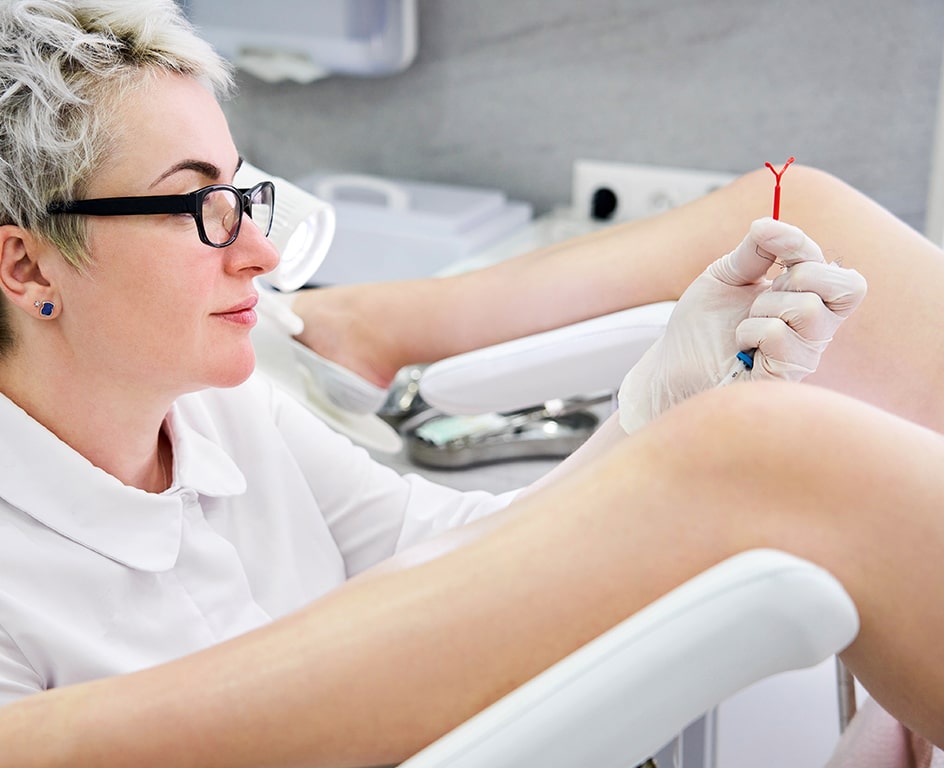
Two main types of contraceptive coils are available:
The hormonal coil is commonly called the intrauterine system (IUS). At GP London, we offer both Mirena and Kyleena IUS to patients, and the T-Safe Copper Coil.
Both types of contraceptive coils are plastic. While the copper coil is coated with copper, the Mirena/Kyleena coil is coated with hormones.
Both coils require insertion above the cervix and can protect against unwanted pregnancy for a long time. The hormonal coil prevents pregnancy by releasing small amounts of the hormone progesterone, which may also help with heavy periods.
On average, the copper coil lasts for 5 – 10 years, while the hormonal lasts for 3 – 5 years. IUDs, however, do not protect you from contracting sexually transmitted infections (STIs), so it’s highly advisable to use protection with new partners, even if you don’t have to worry about pregnancy.
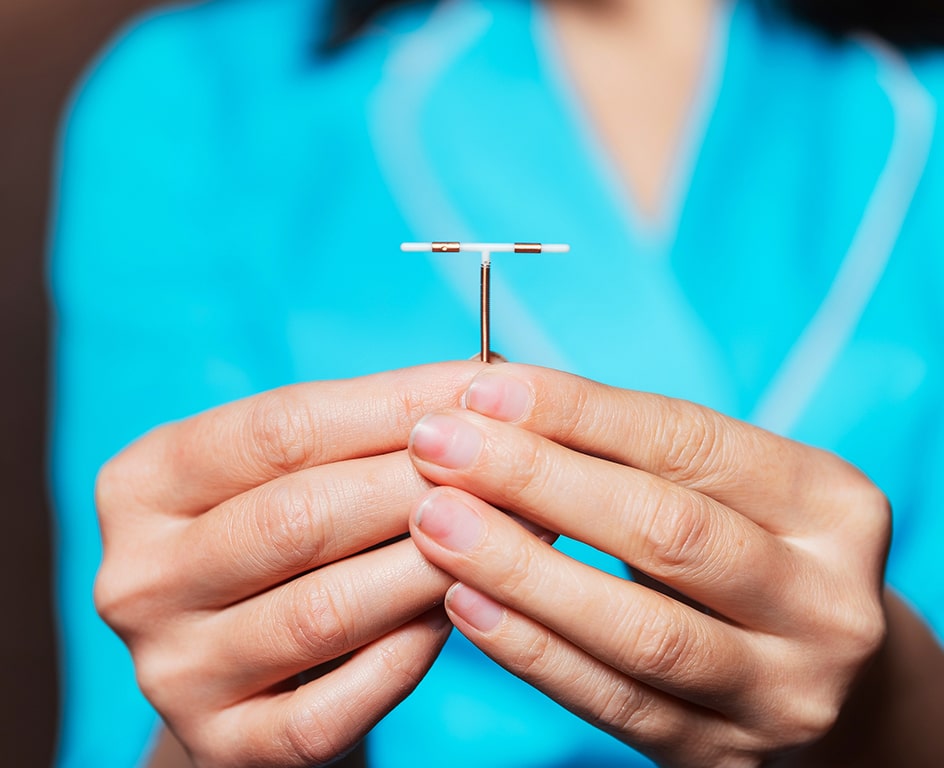
An intrauterine device is a small T-shaped plastic device coated with copper. A doctor inserts it into the uterus (womb).
The device releases copper to prevent conception and offer protection against pregnancy for 5 – 10 years. This makes it also called the copper coil.
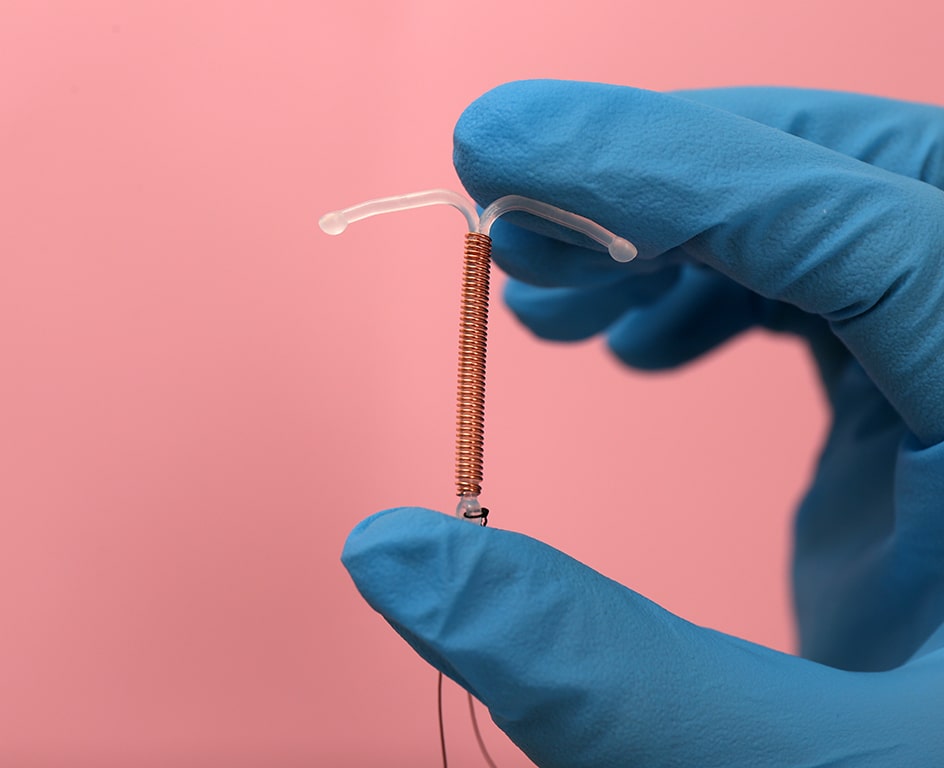

An intrauterine system (IUS) is also a small T-shaped plastic device that a doctor or nurse inserts above the cervix to prevent pregnancy. The small device releases progesterone to stop conception for up to 3 – 5 years.
Our Gynaecologists offer a wide range of family planning services in Chelsea, including Mirena /Kyleena coil fitting. You can visit us or book an appointment for this service.
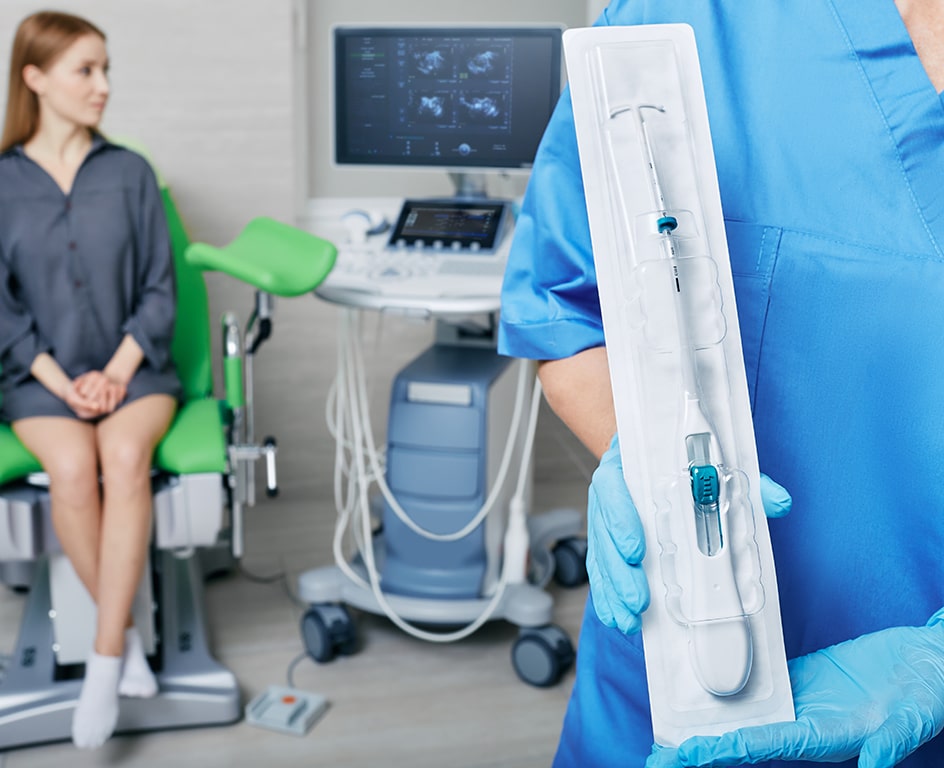
After the initial consultation with the doctor to discuss your needs, most patients immediately proceed to a copper or hormonal coil fitting. A second appointment may be necessary after your last period when the cervix is more pliable. Generally, fitting the coil takes about five minutes.
Some patients may wish to undergo an ultrasound to assess the uterus and determine where to place the coil. The coil insertion is through the vagina and cervix into the womb (uterus), and then another ultrasound may be necessary to ensure the device is in the right position. The healthcare provider will trim the thread attached to the coil at the cervix to aid in removal.
We can apply an anaesthetic gel to ensure your comfort and provide extra pain relief if necessary.
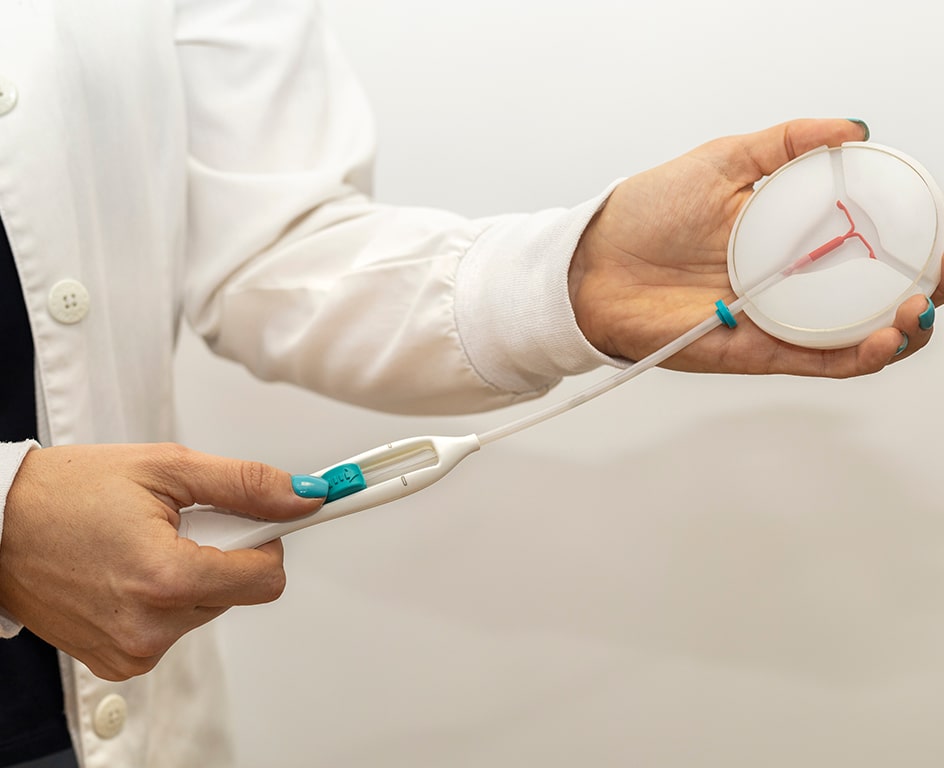
You can have a trained nurse or doctor remove the IUD at any point. If you aren’t planning on fitting another IUD and don’t want to get pregnant, we recommend using additional contraception, such as condoms, for seven days before the removal.
You can get pregnant immediately after removing your IUD.
Our experienced and trained Gynaecologist can remove your IUS anytime. If you aren’t getting another IUS and don’t want to conceive, consider using another form of contraception, like condoms, for seven days before the removal. You can conceive immediately after you remove your IUS.
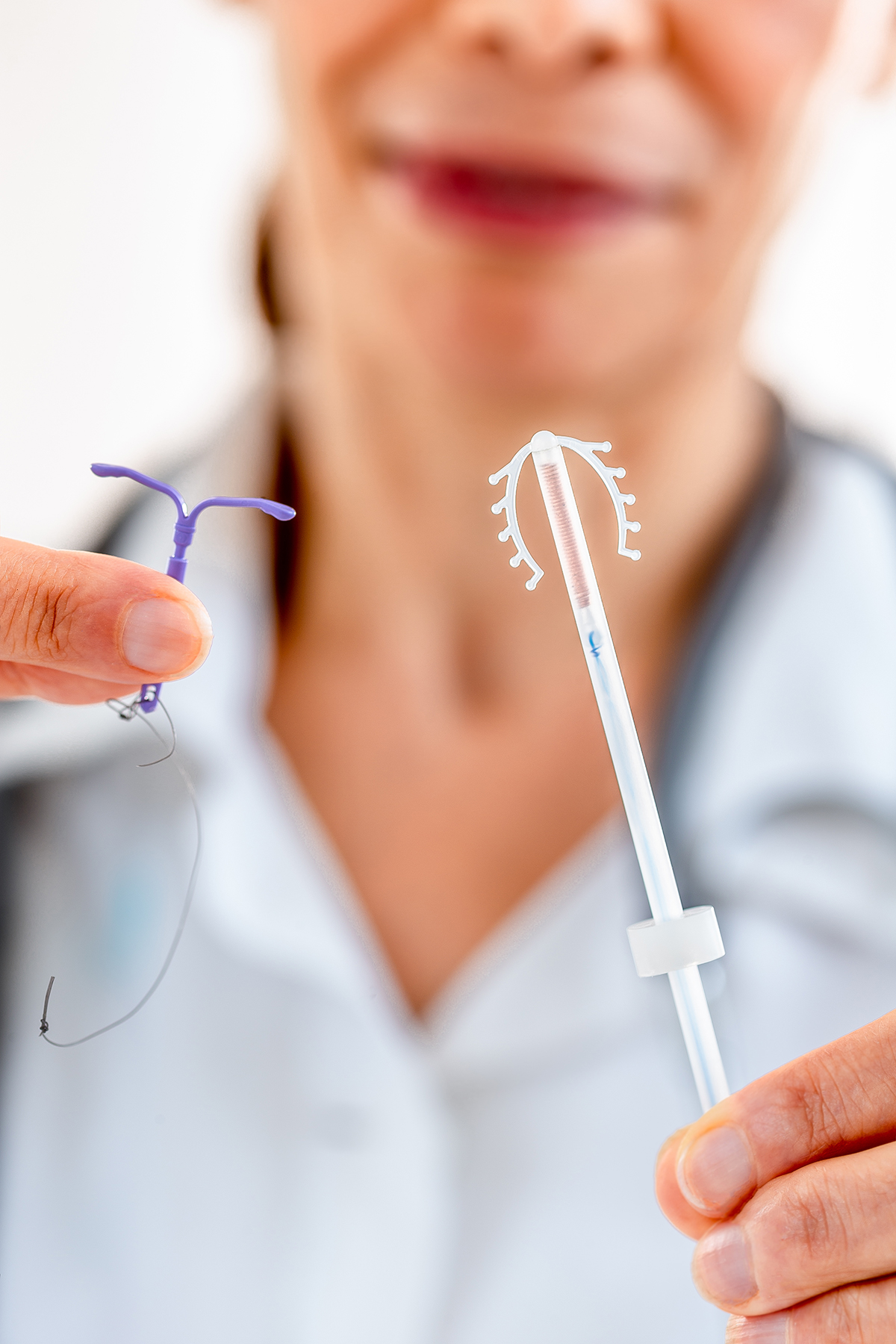
If you use hormonal contraceptives such as vaginal rings, patches, pills, non-expired implants or injections, or condoms, ensure you use them for all penetrative vaginal sex in the first seven days before IUD/IUS removal to prevent pregnancy.
You can fit an IUD or IUS at any time and continue using your current method of contraception until the coil fitting.
Avoid having sex from the first day of your period until the coil fitting for three weeks, in case your period is irregular
Get a short-acting contraceptive like the pill, vaginal ring or patch, and use it for at least four weeks before the coil fitting.
You can have the coil replacement at any time, but avoid sexual intercourse or use condoms for seven days before the replacement to prevent the risk of pregnancy if you can’t fit a new device after removing the original one.
Fitting and removing coils at our clinic is our consultant gynaecologist’s job. The prices below include your consultation and consumables.
After your coil fitting, you can have an optional visit to the clinic after 6 – 8 weeks for an ultrasound scan. The cost of this service isn’t included in the initial price. During each cervical smear, the healthcare provider will check if the coil is still in place.
Our consultant gynaecologist will offer care if you experience pain after the coil fitting or need to schedule an appointment.
If you need emergency contraception, our private doctors will provide the required assistance.
For your private coil fitting Chelsea, visit GP London or call us on 020 70434317 to book an appointment.

A coil, also called an intrauterine device (IUD), is a T-shaped device made of plastic, which is inserted into the uterus (womb)
An IUD releases copper into the uterus to prevent conception and will protect against pregnancy for 5 – 10 years.
An IUD can be fitted anytime during the menstrual cycle if you aren’t pregnant. The device can prevent conception immediately its placed in the uterus. Before an IUD fitting, the gynaecologist will check the cervix to ensure correct placement.
The entire coil fitting procedure doesn’t take a long time. You can have the coil fitting at our gynaecology clinic.
The IUD fitting procedure may be slightly uncomfortable. We have a highly experienced gynaecologist who can fit IUDs at our fully equipped clinic. A consultant-grade clinician will also attend to you at our clinic
You may experience period-like cramps after your IUD fitting, but painkillers can reduce the pain. Bleeding may also occur for a few days but will quickly clear. We provide a free review in rare cases where the bleeding doesn’t stop after 1 – 2 weeks.
Most women can use an IUD, including those living with HIV. A nurse or GP at the sexual health clinic will ask about your medical history and menstrual cycle to determine if you should get an IUD.
An IUD may not be the right option for you in the following instances.
Women who have ectopic pregnancies or have an artificial heart should consult their private GP before fitting an IUD.
Most women are suitable candidates for an IUS, including women who have HIV. A nurse or GP will ask about your medical history to determine if you can get an IUS.
You may be an unsuitable candidate for an IUS if you have the following:
A coil becomes effective immediately after the fitting
You can become pregnant immediately after removing your coil.
A coil has two threads lefts to hang a small distance from the womb. After fitting the coil, your provider will show you how to feel for the thread to reassure you that it’s still in place. You should check for the threads once a month.
Yes. Most women can fit a coil, but the healthcare professional will check your medical history during your consultation to ensure you can get this contraception.
Usually, you can fit a coil four weeks after childbirth.
No. Symptoms such as headaches, breast tenderness, and acne from the pill do not occur with the coil.
Yes, you can. It is 100% safe to breastfeed after a coil fitting.
Yes, you can. Fitting a coil doesn’t affect any other medications.
No. Unlike the pill, fitting a coil doesn’t predispose you to weight gain.
No, it won’t. No scientific evidence indicates that a coil increases the risk of cancer.
You may have heavier periods initially, but they will settle down after some months.